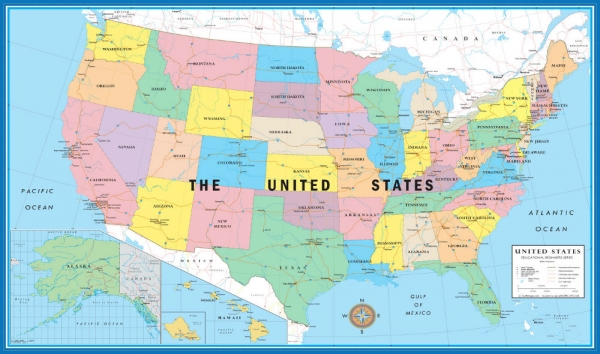The linguist David Crystal has argued that any pride taken in a native language may be “tinged with concern when you realise that other countries may not want to use the language in the same way”. The truth is, the English language is not fixed and has undergone myriad changes over the centuries; absorbing words, phrases and spellings from all over the globe. Numerous dialects and regional peculiarities mean a linear view of its history is imperfect. Nevertheless, roughly speaking, there have been four key linguistic shifts: old English from the 5th century (Beowulf); Norman-influenced middle English from the 11th century (Chaucer); early modern English from the 15th century (King James bible/Shakespeare); and the emergence of modern English towards the end of the 17th century.
It was early modern English that the first English settlers to the New World carried with them – a language on a course to uniformity thanks the print revolution, but still containing words written in multiple ways, often phonetic and idiosyncratic (there are plenty of examples of “theater” and “favorite” in the archive). Some of these words and phrases seem distinctly American to us today. “Fall” is perhaps the most obvious example; a word that was originally used in England in addition to “autumn”.
Obviously, over the centuries new words have emerged and American English has become a distinct branch of the language (like Australian, South African and Jamaican). Vocabulary aside, the linguist Gretchen McCulloch has argued that, in 1776, both “Patriots and the Redcoats spoke with accents that were much closer to the contemporary American accent than to the Queen’s English”. This is because, during the mid-to-late 18th century, the middle and upper classes in London and the south-east of England began to speak in a non-rhotic manner (not pronouncing the letter R). The result was a way of speaking which was distinct from American and grew to be known as received pronunciation. While many areas in England held on to their rhotic origins, received pronunciation came to be seen as the ideal English accent; even spreading into Wales and Scotland. Today, it’s estimated that only 3% of the population use it, but the influence of TV, radio, film and our fading class system means it still looms large.
To get to my second question. There has been plenty of literature exploring the nature of Englishness – from J B Priestley’s English Journey and George Orwell’s Road to Wigan Pier to Krishan Kumar’s groundbreaking The Making of English National Identity. In the 17th century, Alvise Sagredo, saw the English as having “unbridled arrogance”, “lunatic haughtiness” and “overweening pride”. In the 19th century, Ralph Waldo Emerson wrote: “The one thing the English value is pluck. The cabmen have it; the merchants have it; the journals have it.” Speaking about the British more broadly, to Marlene Dietrich, it was all about tea: “It is curious to watch them in times of sudden horror, tragedy or disaster. The pulse stops apparently and nothing can be done … until ‘a nice cup of tea’ is quickly made.”
England ceased to be a sovereign state more than 300 years ago. It now forms one constituent part of the United Kingdom of Great Britain and Northern Ireland. Research has shown that the terms “English” and “British” are often used interchangeably. This is not just when Andy Murray is doing well at Wimbledon. In fact, data from 2007 revealed that ethnic minorities were more likely to identify as British than English, whereas white UK nationals were the reverse. If and how this has changed following the Scottish referendum, Brexit and austerity is yet to be explored. What we do know, is that England covers a space of 50,350 square miles and is home to almost 55 million people. Like the rest of the UK, the English population is a product of hundreds of years of movement and immigration, but hate crimes are now on the rise and its place in Europe and the wider world is uncertain.
So, what does it mean to be English? I put the question out to Twitter and my favourite suggestion was a line from Pink Floyd, “hanging on in quiet desperation is the English way”. Perhaps, in 2017, this is England.







